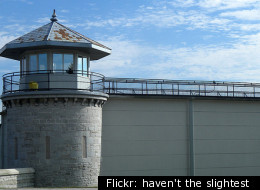 OTTAWA - The Conservative government is using its majority muscle to push through Parliament a massive crime bill that provides harsher penalties for pot growers than pedophiles.
OTTAWA - The Conservative government is using its majority muscle to push through Parliament a massive crime bill that provides harsher penalties for pot growers than pedophiles.Justice Minister Rob Nicholson said the legislation, made up of nine bills that were introduced in previous years, "is an investment to better protect Canadians in their homes and make them feel safer in their communities."
But just how large an investment, and how it will impact crime levels, remain open questions.
Joe Comartin, the NDP justice critic, said the bill is an uncosted hodge-podge of measures that include the good, the bad and the ugly.
"If you're a mid-level trafficker in drugs, including marijuana, you can get up to 14 years. If you're the same person but you sexually assault — rape — a baby, you can only get up to 10 years," said Comartin.
New mandatory minimum sentences are also harsher for drug crimes, in some instances, than for sexually assaulting a child.
"That's right in this bill," said Comartin.
Tough new laws on Internet luring of children and grooming children for sexual purposes are supported across all party lines, said the NDP critic, and could have been passed before last spring's election if the Conservative-dominated Senate had acted more swiftly.
No one appears to have a firm grip on how much the new crime measures will cost. Prison expansion, new corrections officers, additional court resources and the six-figure price tag for incarcerating a prisoner for each full year all add to the bottom line.
Parliamentary Budget Officer Kevin Page said Tuesday there are big expenditures that are starting to happen, but he has not seen a price tag for the overall plan, something he says Parliament and Canadians need to know.
Page estimated that, based on the pieces of information he's cobbled together, the cost of the government's tough-on-crime agenda is upwards of $3 billion.
"What we would like to be able to do is track the spending quarter by quarter, relative to the overall plan, but we don't have that overall plan in terms of what that aggregate cost will be," he said.
The NDP want to hive off three controversial aspects of the bill and pass the non-contentious stuff — including the child sex crime offences — at all stages immediately.
Comartin proposed to Parliament that three aspects of the 102-page legislation be separated out for further debate:
— Barring anyone with more than three indictable convictions from ever being allowed to apply for a criminal records pardon.
— Setting new, mandatory, minimum sentences for growing six or more marijuana plants, among other drug offences.
— Centralizing and politicizing control over the transfer of Canadians imprisoned abroad back to Canada.
"Some we could agree with, but we would like to have the time for Canadians and us to raise questions, to answer and propose amendments if necessary," said Nycole Turmel, the NDP's interim leader. "But that’s not what they decided to do."
In a parliamentary show of force, Prime Minister Stephen Harper's MPs out-voted the NDP, Liberal, Bloc Quebecois and Green party MPs in the House 158-133, punting the bill to a Conservative-dominated committee before a third and final vote sometime later this fall.
The Conservatives said they would pass the legislation within 100 sitting days of the new Parliament, elected last May 2. Given the parliamentary calendar, the government has until well into 2012 to fulfil its campaign promise.
Tuesday's vote kicked off two days of debate on the crime bill on the floor of the House of Commons.
Liberal MP Frank Valeriotte argued that Conservatives speak derisively of the principle of rehabilitation that was put into Canada's sentencing regime 40 years ago.
"Where have crime rates gone over the last 40 years?" he asked.
Liberal colleague Judy Foote, noting crime rates are at their lowest level since 1973, responded: "This government is trying to fix something that isn't broken."
Conservative MP Larry Miller made a pitch based on the legislation's gut appeal, stronger penalties for child sexual exploitation.
"I'll tell you, Mr. Speaker, as a grandfather of a six- and three-year-old granddaughter, this means a lot to somebody like me," said the rural Ontario MP.
"The stronger the laws we can make to protect our children and the vulnerable, it shouldn't even be a question as to support for this bill."
Comartin later noted that he, too, has grandchildren.
"The difference here is we could have that law in place so Larry Miller and myself and other people who are really concerned about our kids could see that (exploitation) law in place in the next few weeks, as opposed to four or six months, which is what it'll take if we keep it combined," said the New Democrat.
Origin
Source: Huffington
No comments:
Post a Comment